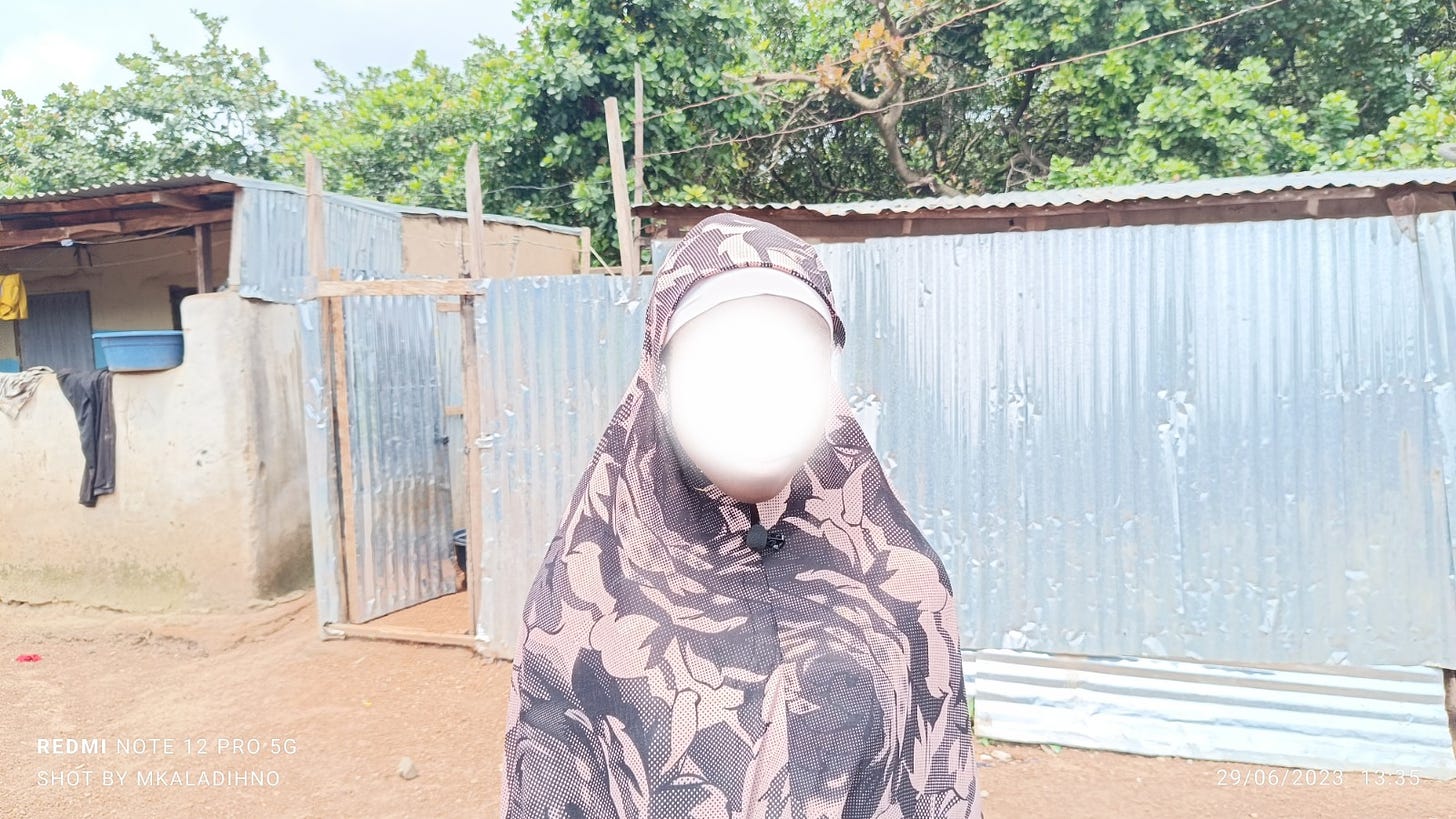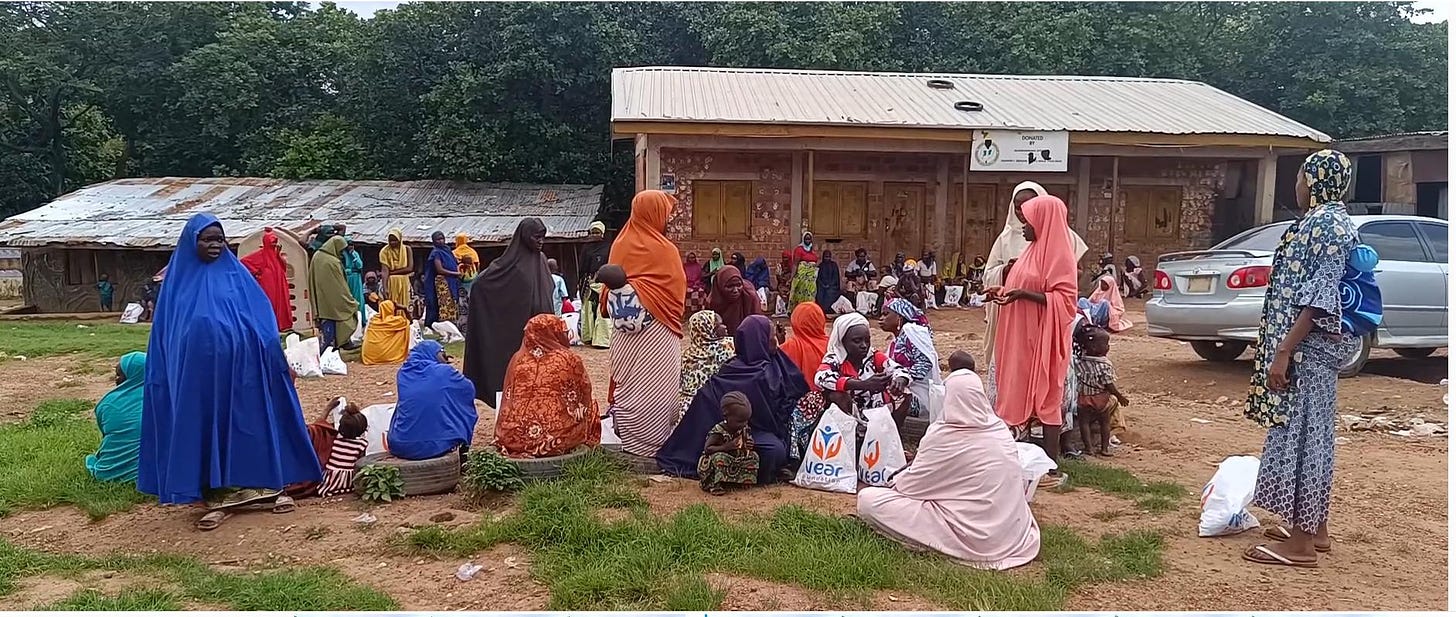Surviving Boko Haram: A Tale of Hope and Desperation in Nigeria's IDP Camps
Boko Haram's reign of terror in Borno, Nigeria, left devastation and despair.
Abuja, Nigeria: In the war-torn region of Borno State, Nigeria, the brutal reign of Boko Haram has left a trail of devastation and despair, writes Bridget Mwanoka.
Shakira, a young survivor, vividly recalls the horrifying day when her father and brothers were mercilessly killed by the militant group.
"When the soldiers slotted the first throat," she recounts, "one body would already be crumpled in the shallow grave, blood staining the sandy soil on the grave's rim."
With sheer determination and the help of local hunters, Shakira and her family managed to escape to an IDP camp in Abuja, but their struggles were far from over.
Life in the Durumi Internally Displaced Persons' camp has been a daily battle for survival.
Shakira and her siblings face dire conditions, with limited access to food, clean water, and education.
"We barely eat," she laments, "and the most intense thing is watching other teenage girls being molested."
Despite the challenges, Shakira has managed to continue her education, thanks to the Buni Yadi Foundation scholarship.
However, the scholarship only covers her school fees, leaving her in need of essential supplies like books, pens, bags, and a school uniform.
Sadly, not all girls in the camp have been as fortunate as Shakira.
Ijili, a fifteen-year-old girl, had her dreams of education shattered when the organisation sponsoring her schooling abruptly stopped their support.
Poverty and early marriages have plagued many girls in the camp, forcing them to abandon their education.
"My wish is to go back to school," Ijili says, "but my parents can't afford to pay for the fees."
The plight of these young girls is just one aspect of the dire situation in the IDP camp.
Idriss Ibrahim Halilu, the camp coordinator and spokesperson, highlights the urgent need for humanitarian support, including food and medical attention.
Many organisations that once assisted have withdrawn, leaving the camp residents struggling to survive.
Insecurity within the camp has also led to rampant cases of rape and sexual predation, with survivors often silenced by fear and a lack of support.
Ibrahim Amadu, the camp's chairperson, echoes the concerns raised by Halilu, emphasising the challenges of poor housing conditions, inadequate food and water supply, insufficient medical facilities, and limited access to education.
The lack of proper sanitation facilities has also contributed to the spread of diseases, further exacerbating the already dire situation.
Despite the overwhelming challenges, there are glimmers of hope within the IDP camp. Local and international organisations, such as the Buni Yadi Foundation and UNICEF, are working tirelessly to provide support and assistance to the residents.
They are implementing programmes to address the educational needs of children and adolescents, offering vocational training opportunities, and providing psychosocial support to survivors of trauma.
The resilience and determination of the camp residents themselves cannot be overlooked.
Many individuals, like Shakira, are determined to rebuild their lives and create a better future for themselves and their communities.
They are actively seeking opportunities for self-improvement and are eager to contribute to the development of their society.
To sustain and expand the efforts to support the IDP camp residents, the international community must step up and provide the necessary resources and funding.
Humanitarian organisations need financial support to continue their programmes and initiatives, ensuring that the basic needs of the camp residents are met and that they have access to education, healthcare, and livelihood opportunities.
Additionally, addressing the root causes of the conflict and instability in the region is essential for long-term solutions.
This includes efforts to promote peace, reconciliation, and economic development, as well as addressing the underlying issues of poverty, inequality, and marginalisation.
The stories of Shakira, Ijili, and countless others in the IDP camps of Nigeria serve as a reminder of the resilience and strength of the human spirit.
By providing the necessary support and resources, we can help them rebuild their lives, restore their dignity, and create a brighter future for themselves and their communities.
It is crucial that we not only provide immediate humanitarian aid but also work towards sustainable solutions that address the root causes of conflict and displacement.
Education plays a vital role in empowering individuals and breaking the cycle of poverty.
By investing in education programmes and scholarships, we can give young girls like Shakira and Ijili the opportunity to pursue their dreams and build a better future for themselves and their communities.
Access to quality education equips them with the knowledge and skills they need to thrive, opening doors to employment opportunities and economic stability.
Furthermore, efforts to improve healthcare services, sanitation facilities, and access to clean water are essential for the well-being of the IDP camp residents.
Adequate healthcare can prevent the spread of diseases and provide necessary medical treatment, while proper sanitation facilities and clean water sources can improve hygiene and reduce health risks.
In addition to immediate relief efforts, it is crucial to address the underlying issues that contribute to the displacement and vulnerability of these communities.
This includes promoting peacebuilding and conflict resolution initiatives, advocating for the protection of human rights, and supporting sustainable development projects that create economic opportunities and reduce poverty.
Surviving Boko Haram and rebuilding lives in the IDP camps of Nigeria is a challenging journey, but with the collective efforts of governments, humanitarian organisations, and individuals, we can make a difference.




